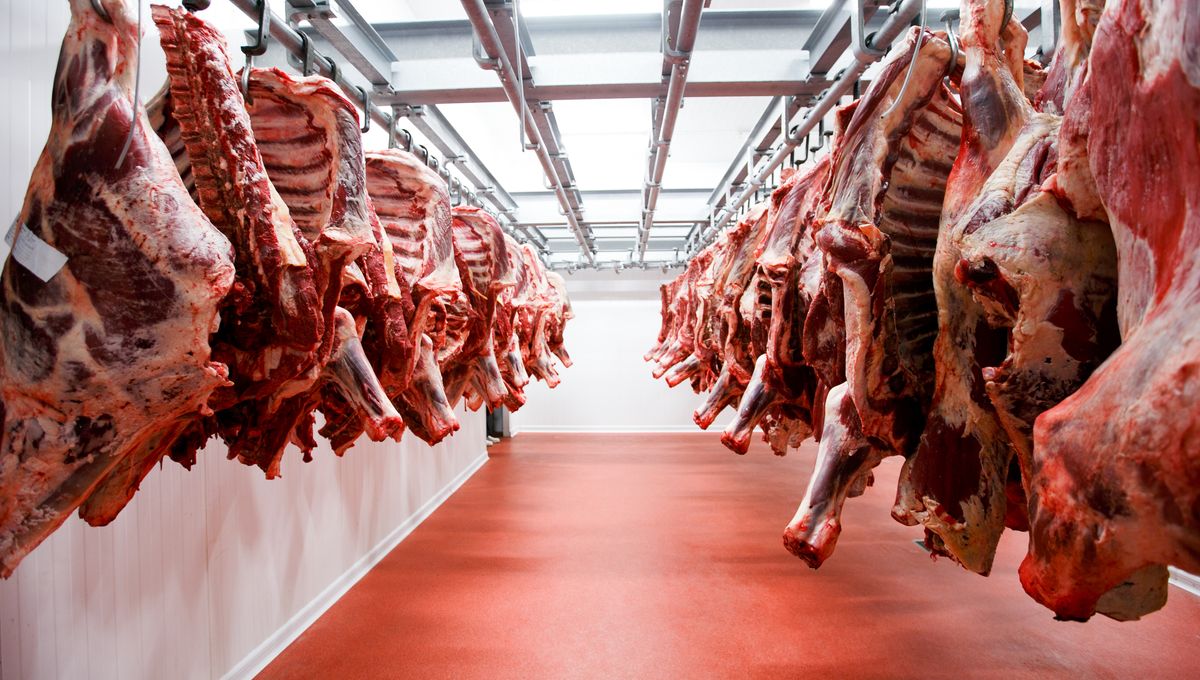
Whether you like the idea or absolutely loathe it, some believe that a “meat tax” is almost inevitable in the near future. While it’s sure to anger die-hard carnivores with libertarian leanings, there’s decent evidence that suggests a levy of high-emission foods could have many benefits for the planet, people, and animals – although it’ll come at a cost.
It’s indisputable that animal farming is a major factor that drives climate change. It’s estimated that livestock production contributes 11–17 percent of global greenhouse gas emissions. While red meat can be part of a healthy diet, it’s also linked to a higher risk of heart disease and cancer.
A meat tax is a proposed levy on the consumption of meat products, intended to reduce meat consumption due to these concerns.
The idea of taxing certain items to change society’s behavior is nothing new. Countries often imposed higher taxes on harmful goods like alcohol and tobacco to deter consumers from buying them. Some regions have also started experimenting with sugar taxes in a bid to reduce obesity, with reasonable success.
In March 2015, the Californian city of Berkeley introduced a substantial tax on sugar-sweetened beverages – a first of its kind in the US. A before-and-after study showed that, compared to predicted sales in the absence of the tax, sales of sugary drinks in Berkeley fell by 9.6 percent within a year, while sales in other areas with no tax rose by 6.9 percent. It’s too soon to tell whether this will have a meaningful impact on the city’s health, but the tax nailed its initial objective.
Research suggests a meat tax could have this kind of positive impact. A study in 2018 found that a meat tax could potentially prevent more than 220,000 deaths globally and save more than $40 billion in healthcare costs.
On the environmental side of the argument, studies have also found that putting a carbon tax on foods that have a high carbon footprint, such as meat, could prevent up to 1.1 billion tons (1 billion metric tonnes) of carbon emissions each year.
Several European countries have started toying with the idea of a meat tax, such as Denmark, Sweden, and Germany. However, the issue is likely to face a fair deal of backlash. Big business and livestock farmers, obviously, will not be thrilled with the plan. Indeed, there’s evidence that a heavy tax on meat could cost the economy significantly.
Many also oppose the tax on ideological grounds, arguing it infringes on their consumer rights and freedom of choice. Another frequently raised criticism is that it will impact low-income families who already struggle with rising food costs. However, research has indicated it is possible to design a meat tax system that doesn’t burden the less economically privileged.
Concerns about the climate are unlikely to sway mass opinion either. A study in Germany has suggested that the public believes animal welfare concerns are a more persuasive justification for introducing meat taxes compared to environmental issues.
Nevertheless, others have found that the taxation of meat to tackle climate change and improve global health is far less unpalatable than politicians think (or claim to think). On a global scale, the researchers found that many were unaware of meat’s impact on the planet. As long as policymakers communicated this effectively, the opposition would be minimal.
“The idea that interventions like this are too politically sensitive and too difficult to implement is unjustified. Our focus groups show people expect governments to lead action on issues that are for the global good. Our research indicates any backlash to unpopular policies would likely be short-lived as long as the rationale for action was strong,” Laura Wellesley, lead author of the study and a senior research fellow in the Environment and Society Centre at Chatham House, told The Guardian.
“We are not in any way advocating for global vegetarianism. We can see massive changes [to emissions] from just converging around healthy levels of meat eating,” she added.
Source Link: Meat Tax: Could A Charge On Steak And Sausage-Lovers Save The Planet?